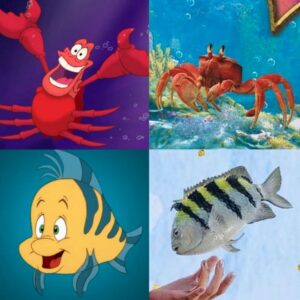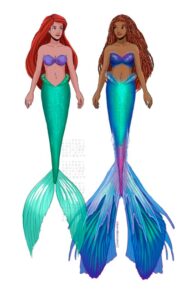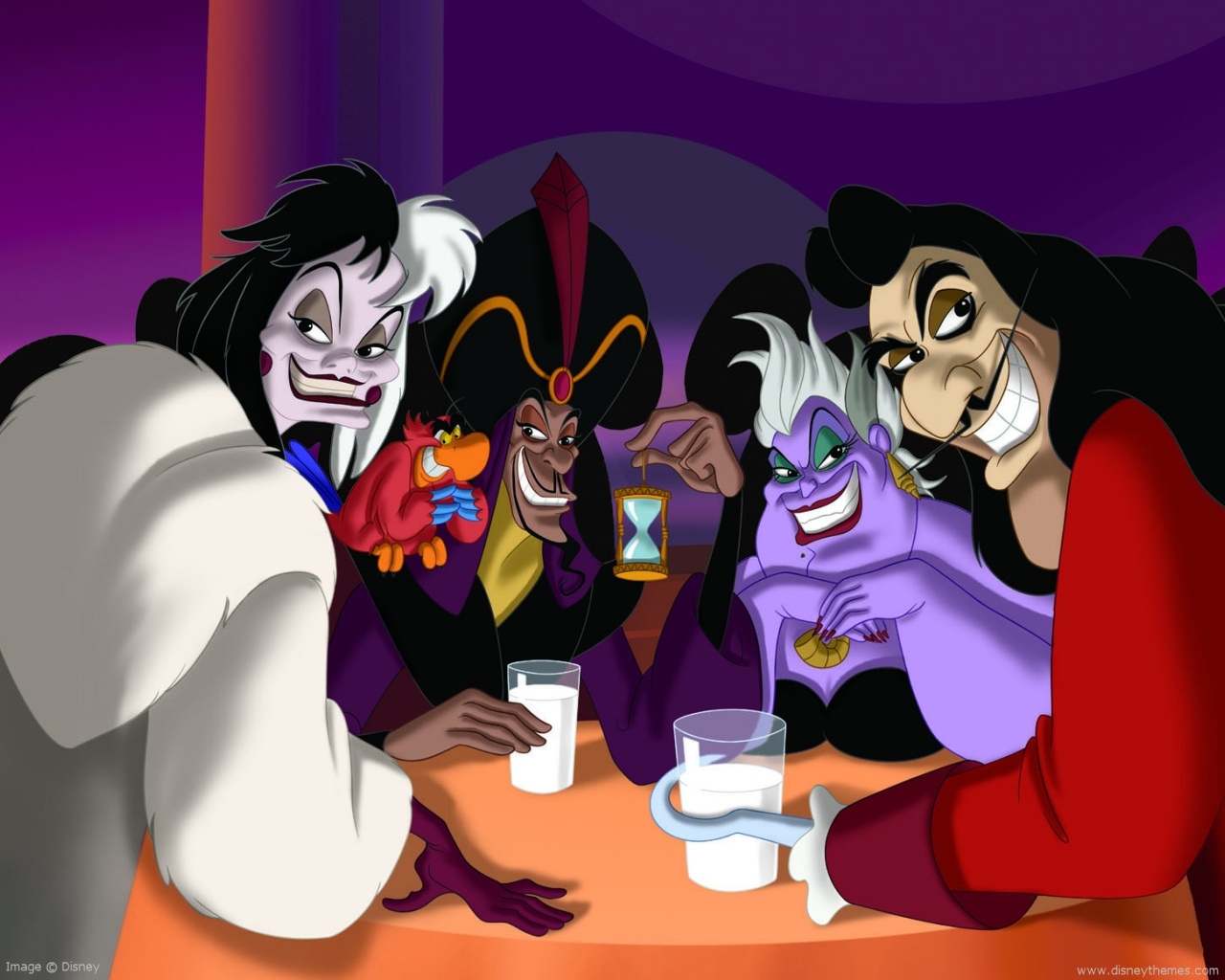
The Walt Disney Company has embarked on an era of change in light of criticism of prior media work. Audiences have expressed a desire for more representation that reflects themselves leading to Disney progressively making an effort to fulfill the audience’s wishes and accommodate the “woke” movement. As a result of this effort, many people believe that the execution has failed to satisfy those desires as well as disappointing fans of the original classics. Remakes of original classics that contain immense changes have fans feeling as if these are only a result of Disney leaning too far into the “woke” movement in order to maximize profits.
“Woke” is a term often used to describe awareness of social justice issues like diversity, inclusion, and representation. This new era Disney has taken didn’t happen overnight but has evolved over time. It all started in the 2000s with Disney officially acquiring Marvel Entertainment and Pixar Animation Studios which helped evolve a more noticeable change with a variety of products including “woke” values. While many applaud Disney’s push for diversity and inclusivity, others feel like they are overemphasizing representation. Resulting in it feeling forced or even tokenistic which sacrifices the quality of the storytelling or authenticity. This has led many to question Disney’s true intention in fulfilling their accommodate to the “woke” movement. They argue that Disney’s efforts are driven by profit motives aiming to appeal to modern audiences and global markets rather than genuinely supporting progressive causes. Disney has received most of their backlash when creating remakes or sequels that update older characters from classic franchises because they neglect the charm that the original casted. Many grew up with these stories and associate them with personal memories giving them a nostalgic feeling. However, with classics being unnecessarily reinterpreted it makes fans feel disappointed about decisions made on the content they hold so dear to their hearts.

The 2023 live-action remake of The Little Mermaid got a lot of backlash due to them changing the main character Ariel, and small elements of the movie. In the 1989 animated film The Little Mermaid, Ariel is depicted as a white mermaid with vibrant red hair, a green tail, and a purple shell bra. In the 2023 live-action remake, Disney made several changes to Ariel’s appearance, including casting a Black actress to play the role. Ariel in the remake has semi-red hair and a tail with a more holographic, iridescent color. Additionally, her shell bra is reimagined with scales in a matching color to her tail. The remake shifts away from the whimsical tone of the original, opting for a more realistic approach. This change leads to side characters losing some of their charm such as Sebastian, the crab, who retains his advisory role, but his distinct Caribbean accent is toned down, giving the character a more neutral portrayal. The underwater world feels less magical due to flounder the fish and the environment being given a realistic visual in contrast to the animated underwater world. While the film retains classic songs such as the iconic “Kiss the Girl” it did have some of its lyrics updated it also introduces new ones such as “The Scuttlebutt.” Many fans were upset by these changes because Ariel was an already-established princess, and they felt there was no need to alter her appearance. Changing her seemed like an attempt to erase the character as they knew her. Those who previously saw themselves in Ariel felt that connection was stripped away with the new reimagined look.

The remake of The Little Mermaid isn’t the only movie that received this sort of backlash.
The live-action remakes of Mulan and The Lion King have also received similar criticism. Due to straying away from the memorable moments of the original films. However, this criticism stems from the potential that Disney has shown with other film releases. Moana (2016) is a celebration of Polynesian culture, blending traditional myths and values with a universal story of self-discovery. Raya and the Last Dragon (2021) offers a beautiful representation of Southeast Asian cultures, drawing from various countries in the region, including Thailand, Vietnam, Laos, and Indonesia. Encanto (2021) is widely praised for its authentic representation of Colombian culture. Disney should continue in this direction of creating new princesses to showcase more representation without altering beloved characters or classics that people have grown to love. This allows for more opportunities to introduce fresh stories and perspectives that many generations can connect with. Giving old and new Disney fans a sense of representation.
While Disney’s attempt to embrace diversity and inclusivity through the “woke” movement has been a significant step toward representing a broader audience, the execution of these changes has often resulted in mixed reactions. Especially in live-action remakes of classic films which has left many fans feeling disconnected from the characters they once adored. Changes to beloved stories have caused frustration for those who feel that these alterations prioritize modern trends over the magic and nostalgia of the originals. Disney has proven to successfully introduce diverse cultures and characters without compromising the essence of the classic tales that have shaped generations of fans. Disney embarking on this new era is a wonderful thing if done appropriately.







Hi Lexi!
I think you make a lot of really good points about how Disney’s remakes of their classic fairy tales tend to be poorly received. With your example of The Little Mermaid, I thought it was interesting how many changes you pointed out, like the changing of Ariel’s tail color/design. I feel like these other changes tend to get more overlooked in favor of addressing the most “drastic” change—Ariel’s skin color.
Your closing point about how Disney has shown they are capable of making new inclusive stories is really strong too. I believe it just adds to the point that changing older stories to be about people of color may cause the attempt at inclusivity to fall flat because of how the identities of people of color so strongly influence how they go through life. They deserve to see themselves in media and they also deserve to have their stories and experiences properly reflected in those characters.
I really enjoyed reading your article and I think you made some great points about how Disney’s remakes often lose the magic of the originals. Your examples from The Little Mermaid and Mulan really showed how changing beloved characters or story elements can feel forced and take away from the nostalgia that so many fans hold onto.
However, I also think the extreme backlash to these changes can make it harder for people of color to celebrate the representation these films are trying to provide. When Halle Bailey was cast as Ariel, much of the conversation turned into criticism about her appearance instead of recognition that young Black girls finally had a princess who looked like them. That kind of negativity doesn’t just express disappointment with the remakes but also risks discouraging progress in the diversity movement altogether.
Hi Lexi!
I enjoyed reading your critical take on Disney’s era of “woke” remakes of older films to update the more problematic elements and promote diversity. I thought it was especially interesting that you formatted the changes in Ariel’s outfit and the added realism of Flounder and Sebastian as additional examples of realism (aside from the more obvious toning down of Sebastian’s accent and casting a Black actress as Ariel). This is an element of Disney’s remakes I hadn’t noticed too much, but I see how they’ve taken away some of the original animation magic from these films to make them more believable, and I wonder if this is part of their “woke” agenda or more for fresh looks to market to consumers. This was a very well-written article, and I agree 100% that the way to proceed is not for Disney to update and “woke-ify” their older films, but rather produce new stories that promote the diversity they’re trying to milk in the remakes.
I like that you took the time to examine this because it is becoming more and more prevalent in society. I immediately thought about the recent changes to the Splash Mountain ride at Disneyland. Due to backlash over the racial and stereotypical tropes of the ride, it has now been changed to Tiana’s Bayou based on the Princesss and the Frog ride. While the actual ride hasn’t actually changed, people were very upset by this. I think it highlights how deeply people value tradition and despite Disney wanting to stay socially aware, people aren’t ready for these changes of their childhood memories.
Hi Lexi, I enjoyed reading your article. I remember when the Little Mermaid cast was revealed and controversy arose. I love Halle Bailey who plays Ariel in the movie. When the cast was revealed I was very excited because she’s a great actress. I remember watching clips of the director, Rob Marshall, addressing the casting and he said the moment she started singing it was clear she was their Ariel. I think representation in Disney kids movies is incredibly important. I believe that she was perfect for the role as an actor and it was great for all the young girls who got to see themselves in her. As a young girl it’s important to be able to see yourself as a princess and this movie gave girls an opportunity for that. I understand the people who are frustrated with the changes. There have been book to movie adaptations that have casted characters who don’t fit the book profile and it can be a bit upsetting sometimes. But Disney is different and these are characters that young girls look up to. It is incredibly important to have representation in the casting. People can call it “woke” and whatever term they want but in the end the movie was made and it did well and made a lot of young girls happy.